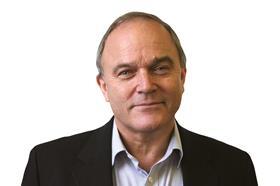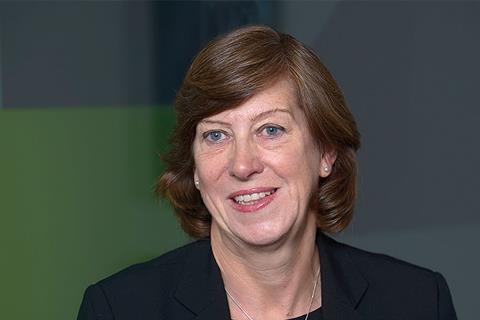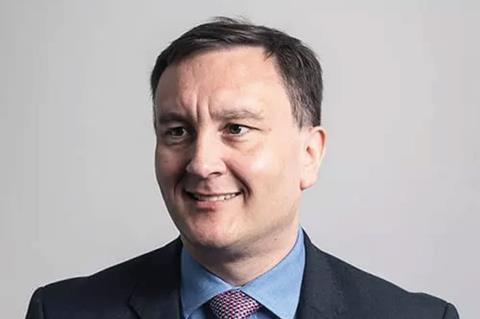Law Management Section conference
This year’s Law Management Section (LMS) conference, held on 19 May, was pleasingly eclectic. Topics ranged from Roger Federer to anti-money laundering, artificial intelligence and an introduction to the science behind our brains.

The first presentation, ‘What every financial director should be talking about now’, addressed the basics of every firm’s monetary health: cashflow, margins and relationship with the bank. Consultant Sara Hutton reminded us that the strength of a brand can be key to accessing funds. But what is a ‘brand’? ‘It is what other people are saying about you,’ she says, ‘and is worth the investment in time and resources to convey the strongest and most positive message.’
Consultant Sue Carter warns that so many specialists have left the financial sector since the beginning of the pandemic that nowadays it can be difficult simply to open a client account. She advises us to think what we most want from our banking relationship, but to be realistic: ‘You can’t have it all.’ The other side of the coin, of course, is: What does the bank want from us? ‘Cherish, nurture and be proactive in all your dealings with the bank,’ is Carter’s advice.
'AML is the SRA’s top priority and it needs to be yours'
Alison Matthews, Shoosmiths
Andrew Allen, LMS committee vice chair and partner at south-west England accountants PKF Francis Clark, warns that in six to nine months, because so many people have left the legal profession, the economic climate is likely to become even more challenging as cashflow either stalls or declines. ‘Firms need to spend time considering the cost of the services they provide while also reviewing which clients they really want to act for. Demand is outstripping supply and there are no longer enough people to do all the work.’
Next up is Alison Matthews, who in chair David Gilmore’s words is the ‘Roger Federer of Anti-Money Laundering (AML)’, having been named AML adviser of the year every year from 2014 to 2019. Director of quality and risk at national firm Shoosmiths, Matthews warns firms about the need to comply with AML requirements: ‘AML is the SRA’s top priority and it needs to be yours.’
She lists some looming challenges. These include the economic crime levy, a proposed tax on all anti-money laundering regulated businesses – including law firms – to fund the fight against economic crime. The SRA will also be carrying out more visits to firms to check compliance. There will be legislative changes, too, and increased focus on sanctions, with more of them being introduced as time passes. ‘Check the status of sanctions daily,’ advises Matthews.
'Demand is outstripping supply and there are no longer enough people to do all the work'
Andrew Allen, PKF Francis Clark
Michelle Howard, director of her own eponymous consultancy, tackles the ‘challenging’ post-pandemic recruitment market. ‘The stage is crowded,’ she explains, ‘and so potential candidates are blind to advertising. The result is that, out of desperation, firms are recruiting the wrong people. They are paying huge salaries to people who have written their own job specification, rather than selecting people who share the firm’s vision.’

What is the solution? ‘Put time into defining your firm’s unique selling proposition (or brand or culture) and make it central to the interview. Don’t write it on the back of an envelope, but have it readily to hand. From the interview, determine whether the candidate buys into how you see your own firm. If not, is this going to be a source of future conflict?’
The next hurdle, addressed by Jonson Beaumont legal recruitment managing director Anne Harnetty, is ‘Retaining talent’. Since lockdown London law firms, she notes, have lost 44% more associates than they have been able to hire. The effect is to disrupt the firm’s culture and upset clients who expect continuity.
Paying more is rarely the way to stop talent leaving. Some firms have doubled partners’ salaries and given associates a 25% pay rise, but it does not always work. Money, Harnetty finds, is rarely cited as the primary reason for moving on. Unfulfilled promises, such as an improved work-life balance or more complex cases, are more frequently blamed.
‘A mismatch between what you say and what you do inevitably fosters distrust,’ states Harnetty, ‘and gives impetus to a person’s yen to seek pastures new.’
The keynote address, ‘The neuroscience of change’, is delivered by Dr Helena Boschi, who for many years has examined the relationship between brain science and business. ‘Brains are negatively biased, with a strong instinct for survival and safety,’ she begins, adding with a smile: ‘As such, they have evolved perfectly for risk-averse lawyers.’
She continues: ‘Brains need other brains. We are not designed to be alone.’ Again, it appears that our brains are well-suited to the collaborative or collegiate approach to providing legal services and to cooperating to implement change. ‘We each have 86 billion neurons in our brains, which communicate with one another via synapses or junctions linking one neurone to another.’ The transmission of such messages is prompted by chemicals such as feel-good serotonin and anxiety-reducing GABA. This is an automatic reaction to the chemical in question. ‘However,’ explains Boschi, ‘certain areas of our brains control how we cope with the complicated world that surrounds us. Parts of our brain seek clarity, for example, because abstract words are inherently hard work. Endomorphins, which like serotonins are often called feel-good chemicals, signal the brain to help us endure pain and stress.’
And there is certainly lots of stress in today’s legal market.

Qualifying workexperience (QWE) is the newest and therefore the least-tested route to qualifying as a solicitor. South London firm Anthony Gold partner Sarah Hughes says QWE offers firms and candidates enhanced flexibility because only minimal training requirements are required and the scheme can be engineered to suit all departmental needs. There is no rigid one-rule-fits-all approach and also the opportunity for candidates to complete all their QWE in just the one department, rather than the seats required by the traditional training contract.
But how is the scheme faring? Holly Moore is the UK’s first in-house solicitor apprentice and in the fifth and final year of her apprenticeship at broadcaster ITV.
Moore graduated with a first-class law degree in 2020, but lacked the funding for a Legal Practice Course, which in turn precluded her from securing a training contract. ‘That’s why I opted for the apprentice route through QWE,’ she tells us. ‘It is not a soft option. You must work and study at the same time, which is rugged but gives you wide-ranging experience of life as a solicitor.’
Moore passed her first set of exams and is now preparing for SQE 2, whereupon – if she passes – she will qualify as a solicitor in autumn 2022. ‘It’s a route into the profession for those of us without financial backing and yet many people still haven’t even heard about apprenticeships.’
The conference begins to wind down with ‘The workplace revolution’. Perry Timms, founder of consultancy People & Transformational HR, urges us all to undertake strategic workplace planning (SWP) because ‘where people produce results, they tend to be happy and don’t leave’. Timms defines SWP as ensuring the place of work ‘enhances organisational capabilities’ [that is to say, leverages the advantages the office can offer versus working from home, such as quick access to colleagues and to IT support] while also providing a comfortable and stimulating environment.
Panel member Clive Thomas, managing director of south Wales firm Watkins & Gunn, advocates ‘creative design for premises, perhaps even bean bags’, whereas Nadia Biles Davies, chief operating officer at London public law firm Sharpe Pritchard, simply recommends ‘what works best for the team, clients and yourself’.
The conference closes with ‘Artificial intelligence (AI) and technology’. Artificial Lawyer founder Richard Tromans demystifies AI by describing it as ‘wordsearch on steroids’, Google being a prime example because it revolves around natural language (as opposed to code) processing.
David Baskerville, director and lead consultant at consultancy Baskerville Drummond, continues the process of demystification by stating that ‘AI is often established software rebadged as AI. The crucial first step is knowing what problem you want your AI to address.’ Tim Smith, founder and chief executive of the associate sponsor of today’s conference, Insight Legal, cautions: ‘Often you don’t know how good what you already have is. If a salesperson begins his visit with showing you his company’s software solution without first looking at your existing software, then he is probably not the person you should be speaking to.’































No comments yet